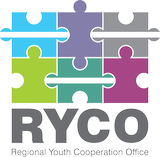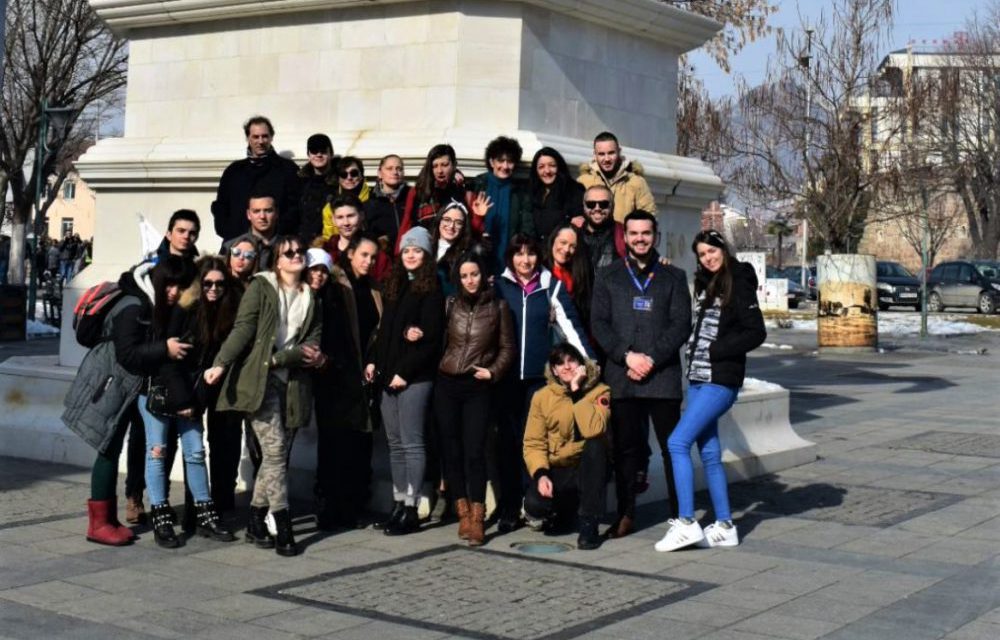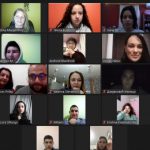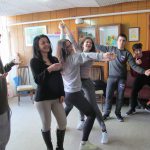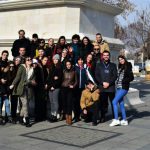MONTENEGRO/NORTH MACEDONIA/SERBIA – Within the third RYCO Open Call for Project Proposals, supported by the Federal Republic of Germany, the Geological and Hydrometeorological high school “Milutin Milanković” from Serbia in partnership with the Secondary Municipal School “Mirce Acev” Prilep from North Macedonia, the Public Institution “The first professional secondary School” from Montenegro and BAZAAR from Serbia, implemented the project “VOICES: Value of Intercultural Creative Education in Schools”, which took place from January 2020 to March 2021.
“By supporting young people from Serbia, North Macedonia, and Montenegro to participate in the VOICES project, we encouraged an open-minded attitude that helped all of us in innovating new teaching methods and techniques such as crossover learning, learning through argumentation, context-based learning, critical thinking, adaptive teaching, analytics of emotions, and role-playing,” project representatives stated.
Young students from different educational, economic, social, and cultural backgrounds and their teachers from secondary schools in Serbia, North Macedonia, and Montenegro, alongside experts from civil society organizations gathered in the VOICES project to strengthen intercultural learning and dialogue. They also learned about the development of contemporary performing arts and their importance for peaceful and cohesive societies.
“I am very happy that I was involved in this project, as I have always been interested in working with peers from other cultures. No matter how different we are, we are so similar. This is one unforgettable experience that has encouraged me with many values and virtues such as tolerance, creativity, appreciation, appreciation of diversity, collaboration, teamwork,” Ms Marija Draganić, pedagogue from Montenegro, added.
Speaking of how the VOICES project helped the young participants to connect and make new friendships, Ms Ivana Romić one of the project participants added: “I hope that these contacts will never be lost and that we will talk about this unforgettable experience all the time.”
During the organized activities, youth were engaged in creating scenes, producing role-plays, spontaneously using their imaginations to learn interactively in context and to use their\ potential, capacities, creativity and imagination.
“Despite the fact that the pandemic has prevented immediate work with students, our goal has been achieved: the outcome of the whole process is a transformation of behaviors. The process of working creatively and together has been developing respect for others and for differences, strengthened cooperation, empathy, and solidarity of students and teachers, built self-confidence of the participants, as well as fostered inclusiveness, equality, and teamwork across generations and social status groups,” project representatives described.
Through creative teachings and processes, this project enabled successful youth cooperation in the fields of intercultural dialogue and empowered youth to be more proactive in the fields of youth mobility and exchange as active contributors in their schools and communities.
In conclusion, Project Coordinator Ms Vesna Vojvodić Mitrović shared her key takeaways from the project and concluded: “This project improved my sensibility and strengthened my capacity to work on peacebuilding. I intend to intertwine creative theatrical practices and the idea of peace in the Western Balkan region. I hope I will be able to arouse and nurture the curiosity and empathy of young people because they are not only our future but also the precious present of our lives.”


